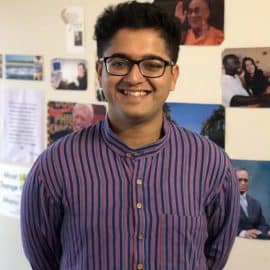


| Personal Brand Presence | 8 / 10 |
| Authoritativeness | 6 / 10 |
| Expertise | 7 / 10 |
| Influence | 5 / 10 |
| Overall Rating | 6 / 10 |
Manu is trying to end severe poverty by giving rural Indians respectable digital jobs. At the moment, he serves as the CEO and co-founder of Karya, a revolutionary AI collective that promotes respectable livelihoods. Through his initiative, more than 100,000 rural Indians have been lifted out of terrible poverty in the last three years. After earning his degree from Stanford in 2017, he co-founded CS+Social Good, the university’s first student organization devoted to technology and impact.
Additionally, he has instructed other tech-for-good courses in the computer science department at Stanford. His students have created projects that have touched over 30 million individuals in 15 different nations worldwide.
An Indian firm is putting out its own set of attempts to help the underprivileged gain money at a time when many AI startups are soaring to success and enjoying fantastic profitability. Founded in Bengaluru (formerly Bangalore) in 2021, Karya is a non-profit business that describes itself as “the world’s first ethical data company.” High-profile clients of the startup already include Microsoft, MIT, and Stanford.
Like its rivals, it charges market rates for the data it sells to large tech businesses and other clients, but instead of retaining most of the money for profit, it pays its bills and donates the remainder to India’s rural impoverished. (Karya collaborates with regional NGOs to guarantee that historically marginalized groups and the poorest of the disadvantaged have priority access to its jobs.) Karya offers its employees de facto ownership of the data they generate while working, meaning that they get paid the revenues of any sales in addition to their previous salary. This is in addition to its $5 hourly minimum. No other model in the business exists like this one.
Millions of individuals whose languages are marginalized online may be better able to utilize the advantages of technology, particularly artificial intelligence, thanks to Karya’s efforts. According to Vinutha, a 23-year-old student who uses Karya to lessen her financial dependency on her parents, “the majority of people in the villages don’t know English.” “If a computer could understand Kannada, that would be very helpful.”
Solana has demonstrated strong performance, driven by increasing adoption, institutional interest, and key partnerships, while facing potential ...
Know MoreIn April 2025, the crypto space focused on strengthening core infrastructure, with Ethereum preparing for the Pectra ...
Know More